On The Chosen Self, Necessary Losses, and Winter
What does "best self" mean, exactly? Let's chat besties. Yellow Brick Road.
This is the Hour of Lead
Remembered, if outlived,
As Freezing persons recollect the Snow—
First—Chill—then Stupor—then the letting go— Emily Dickinson
During the promotion of Adele’s album 30, she said:
“There is joy in the hard times; you just don’t see it when you’re going through them. I definitely wrote this album for us.”
I have a way of being able to predict when I will go through a painful initiation in the upcoming year. Sometimes I can just feel it. And sometimes…Adele releases an album. 21 was released the eve of my 17th birthday, a year when I would experience death for the first time and fall into a deep depression for nearly 2 years. 25 was released a week after I got into my first relationship. I fell and tripped and landed face first into love that year, beaten and bruised by the end of it.
Who is the “us” Adele wrote her album for? In several interviews, Adele mentions being a naturally sad and lonely person; a wintry person. I’m not sure if that is a compassionate self-assessment or if it’s possible to be a naturally sad person; but I do think that some people are born to unveil what whispers in dark places, knowing intrinsically how to safely sink into them. I’d like to think Adele wrote 30 for those of us who know that winter will come again, and when it does, we will sustain without fear of frigidness sinking into our bones forever.
A sobering initiation to forthcoming spring bloom. That’s what this album feels like. Much of Adele’s success has come from the ability to express the path to acceptance through heartbreak. In this album, there is a distinct tone of resignation replacing the yearning in her younger albums. The resignation to the obvious truth that loss is the place where she finds holy perspective, bottles it up, and serves it to the people like a cure for something we couldn’t even name. She is a testament to the sacred holding space of necessary losses.
What’s A Necessary Loss?
During fall, the leaves descend from high places and so do our expectations of how the year should’ve, could’ve, would’ve panned out. Perhaps this descent - the subsequent grieving of what could have been - is a call to shift our understanding of how time, healing, and Becoming play out in our lives.
Did we get closer to the best self we imagined at the top of the year? Was our time used wisely? Were our goals even worth striving for? Could we find grace for the idea that maybe we’re in our flop era?
In this introspection, there are some necessary losses. Like losing the expectation to achieve linear and exponential growth (maybe we consider what achievement means in this context) and progress in every season of every year of your life until you die? Necessary. Losing the connectedness, the oneness we feel with peers striving for the same ill-fated expectations? Also necessary.
This week, I read Necessary Losses by Judith Viorst and felt unraveled in the best of ways. To spare you a full read, the premise of the book is that from the first moment we detach from our mothers to become people, we begin a lifetime of renouncing “oneness,” and any condition that requires relinquishing our individuality and sovereignty, in order to become whole. In short: losing and grieving connection with others (roles, responsibilities, attachment, dependency) is the price we pay to find belonging and happiness within ourselves.
A couple weeks ago, I wrote about the experience of seasonal affective disorder and how one copes, but I think there’s a solid chance SAD and our impulse to take stock of another year’s accomplishments (or lack thereof) are connected. Of the many definitions, feelings, and states of being I am perpetually redefining, the term I’m currently fixated on is “best self” and how it impacts our ability to sit with the winters and great freezes to which we will surrender.
The Best Self As Inner Critic
I have this print in my apartment. It says “Visualize your highest self then show up as her.” I love it; it’s cute. Recently though, it has grown eyes that follow me as I pace through my apartment. Judging. Squinting at me scrolling on my phone as my anxiety grips every cell in my body.
I guess the best or highest self feels like an avatar rated in agility, speed, and strength that I pick to perform in the video game of my life. Or a big boss I’m defeating at the final stage of learning how to wake up on the first alarm or stop “soaking” dishes to avoid scrubbing them or actually remembering I made a cup of tea before it goes completely cold. Rather than someone I am choosing in grace and compassion and curiosity each day, whether in quick pace toward a goal, or in deep freeze and restoration, or in absolutely gut-wrenching loss. Whatever it is, it doesn’t feel entirely human or…me.
“Best” as a concept requires comparative structures. Best requires a pedestal to stand on. Best is a ceiling, because…where the hell do you go after you’ve reached it? And after achieving “best,” how does one cope with the essential nature of growth which requires we be the worst at something again in order to continue evolution? How does one factor in the seasons of necessary loss in order to gain a more honest and sustainable sense of self?
A while back I dated someone who never honored my resilience, my courage, my irrefutable pursuit of splendor, but always called me “the best.”
“You’re the best,” he’d say, while pretty much ignoring any and all pleas to have my needs met, and failing to nourish the many stages of growth that create someone who would be deemed best at anything. “The best,” while I suffered from debilitating anxiety every day, drifted away from my closest connections, and lost kinship with my creative force. This is how my heart recognized projection. Because every time he called me “the best,” I heard:
“You are a projection of everything I need you to be right now - no matter how much you suffer to be so - and can’t exist in any state that is in flux or freeze or flow.”
I was an idea, and ideas don’t require - or rather, don’t allow - reciprocity, care, or growth. This feels like what we do to ourselves when we strive to show up as our own superhero. Without regard for what we’re doing when we’re not progressing by societal, social, or self-imposed standards - grieving - we lose ourselves. We throw who we are any other day under an invisible cloak of shame, neglecting what needs pouring into while we renounce, grieve, and sift through the ashes of what need not and never will be.
I personally used “best self” a lot, because my Good Student Syndrome loves a grade and a gold star for existing. I still don’t hate it, but it has turned just a touch sour on my tongue. Over time, being labeled the “best” of any state of me feelings grating and less gracious than I like to be with myself.
The best self is our projection of a reality where we won’t yearn or long again, and the only place that exists is in death. I refuse to bypass life in order to be a best self, when I can choose myself - be a chosen self - at any time.
A chosen self is someone you decide is enough. Who you decide you will never again sell up the river to escape from, no matter how shiny the lure. That feels like something closer to who I am right now. I can’t stand to rename my inner critic again; to pick another impossible metric to model myself after, and call it self-improvement.
Hygge For The Soul
In our efforts to stop idealizing others and what they can do for us, we have decided to start idealizing ourselves as the “best self” - a mystified and often insecurity-projected version of who we think we need to be in order to be received, heard, and understood.
That’s all we talk about here at Come Home. Belonging.
To own our chosen self, the all-powerful “I,” it seems valuable to abandon the way we partition the inevitably turbulent stages of development off into moral good and bad, light and dark, summer and winter. There’s no room for the wonder of creating warmth in winter when we’re so stuck in getting to sunny summer as quickly as possible. As a January baby, I know winter in my bones, and when I shake out that sticky, sunken chill in the summer - it is an ode to all I’ve done to stay alive and warm in the coldest and darkest seasons of my life.
I guess that begs the question: how do we stay warm - spiritually, emotionally, physically - in times of sorrow, loss, stillness, and frozen progress?
Scandanavia, while being cold and dark for much of the year, is routinely rated the happiest region in the world. Of course, this is directly connected to abundant and accessible healthcare and welfare programs, but culture is spoken for here as well. This week, I found a TikTok (my brain is smooth) which lead me to research Hygge. I’m about 5 years late, as Hygge was Oxford Dictionary’s word of the year in 2016, but better late than never.
Hygge, as it turns out, is not just interior design. You know Cameron Diaz in The Holiday?? That. Yeah, it’s giving very much that.
Hygge roughly translates to “creating a quality of coziness and comfortable conviviality that engenders a feeling of contentment or well-being.” Other definitions include:
“a form of everyday togetherness”
“a pleasant and highly valued everyday experience of safety, equality, personal wholeness, and spontaneous social flow”
How cute!!!!!!! The lifestyle centers building a sanctuary of whimsies, frivolities, and comforts to offset and de-center sobering experiences and harsh environmental factors. The catch is to not attempt to create summer during winter. The point is to lean into the distinct “feel goods” of winter and do with what you have. At its core, it seems to be a mindfulness practice above all else in which we romanticize the simple pleasures of life and bring ourselves closer to kith and kin, despite the misery and/or stagnation imposed upon us.
What is Hygge giving?
Fuzzy slippers
Warm bevvies
Throw blankets
Soups, stews, and all warm liquids you slurp out of a bowl
Candles
Fresh baked sweet treats
Small get-togethers
One distinct “takeaway” I gathered from this cultural difference is that productivity, expansion, movement, and bursts of energy cannot be our entire existence, and that is lovely. Allowing ourselves space to observe the mysteries and secrets of winter does not mean we will be stuck there forever - trapped in an ice house of our own despair - and it doesn’t mean we’re surrendering to laziness, pessimism, or hopelessness. It is choosing to see yourself in the grey - neither light nor dark. It is straddling two realities - the one where you bend over and wretch for dashed hopes and the one where you will always have a chance to show up again for the life you love - while remaining dignified in every reality conceived.
We will go through phases of depression, loss, stagnancy, barrenness; probably half of our lives will be spent in these stages. So is life. We pedestal our winning seasons, letting the pendulum swing and bulldoze us over as it comes back the other way, leaving us crushed. It does not behoove anybody to spend all of that time waiting for summer, or our best selves, to find our goodness and oneness with each other again.
Arguably, there is no such thing as terrible weather, just weather-appropriate clothes**. If you’re like me, the tendency to isolate often comes with both the literal and proverbial colder months. Part of our “equipment” for our darkest and coldest hour - periods of feeling abandoned, alone, or stuck - is quality time with each other.
**If you’ve ever spent a winter in the American Midwest, you’d know this exists purely in analogy because that shit is apocalyptic.
This feels like a good time to plug how incredibly hygge this chosen family shoot I did for Everlane with my girls Delisa, Chandler, and Michelle was. These people are my warmth always.
Crying Over Spilled Milk
The card in the tarot that is unmistakably sorrowful is the 5 of Cups. I mean, look at it. The bitch is going through it, and wearing all black like she’s at her own funeral.
You can probably guess the card’s traditional meaning in the Rider-Waite-Smith. The number 5 is a number of loss, change and upheaval. The cups in the tarot are our emotions, the realm of the water signs. Thus, our card here represents an emotional upheaval causing one to feel dejected, disappointed - at worst, regretful and ashamed. I’ve seen many readers whip it out in a reading, and run to remind the querent that they are being pessimistic. “Look!, they say. “Do you see how the figure is ignoring the two full cups behind them! Time to turn your frown upside down!” And at that point, I turn my brain off.
The secrets of this card couldn’t simply be “get over it;” people only focus on what has yet to be processed and we wouldn’t be stuck in grief if we were actually feeling it. The 5 of Cups is about necessary losses and what comes up as we clean spilled milk.
You’ll notice just beyond the sullen person is a view of the city, to signify the opportunity for greater perspective. You’ll also notice the liquid from the three spilled cups - our emotional investment in connectedness and the roles we play in fulfilling that connectedness - runs right back into the body of water she weeps in front of and washes back onto the fertile land she stands on. This is powerful imagery to me. This, in my humble opinion, speaks to the fertility of grief.
Witnessing ourselves in the process of renunciation, in our 30 album era, welcoming the big feelings to wash over us, calls what we perceive as loss - the energy invested and attachments made - back to us. Back to the shores of hope and restoration. To become the foundation for life and joy after loss.
Last year, I spent Thanksgiving and Christmas alone. With the pandemic and the irreconcilable differences between me and my relatives, it was best if I sat out the performance of peacemaker for once in my life. Over last last few years and thanks to therapy, I made the transition from golden child to black sheep and my former title of peacemaker was as good as 6 feet under anyway.
By Christmas, I made it through my first lonely holiday and was coming up on the second. Christmas, despite being raised in a pretty secular family with no real rules, was a big deal in my childhood and keeping up traditions - the food, the extravagant decorations, the baking, the music - meant something to me. I woke up and journaled to Christmas music every day leading up to the holiday. I hung my first garland, decorated my first tree, which was serving femme fantasy in all pink and rose gold. I made all of my favorites - sweet potatoes, stuffing, mashed taters - and subbed the turkey and ham for whole roasted chicken because I love myself.
After cooking for hours, I sat at my high stool kitchen table in my Brooklyn apartment and ugly cried over my meal. A single tear sopped up by the flakey, buttery rolls I’d just taken out of the oven. Poetic.
I cried because this was, by far, the most merry Christmas of my life. I cried because I missed the relationships with my family that I once had, and missed the relationships I would never have. I cried because I missed being peacemaker even though it was 20 years of emotional turmoil, and was so fucking grateful to never be peacemaker again. I cried because I was no longer the person who could sit in fight or flight waiting for all of us to have one glass of wine too many and drudge up decades of trauma. I cried because in the absence of our annual fight was deafening silence. In the absence of what I was given at birth, was what I made for myself. Just lil ol’ me. And I’d decided she was deserving of new traditions.
I made my choice and was willing to sit in it. I created every condition imaginable for joy, and still felt so incredibly sad for the renunciation of what couldn’t be unsaid or undone or fixed or repositioned for optics. For concessions I was no longer willing to make to fit in when I truly needed belonging. Connection with a false self I needed to be to appease others, and oneness with born family were necessary losses - whether they understood or not - to prioritizing my wellness. All of this, and I was unwilling to pretend that this reality made my loss feel any less…loss-y. So I sat in a beautiful, sparkly, and merry room for Christmas, and I wept. Because it was, at least, my Christmas to ruin this time.
Yes, there are always nuggets of hope, something joyful to cling to, and something optimistic to focus on. There is always good to be found. But there will only be temporary pleasure and extended sorrow if we say “focus on the good!” Grief calls our name for a reason, and it is persistent - some may even say relentless - because it is truth. The grief is often the good. The release of burdensome roles and unmet needs. The resistance to harmful traditions. Learning how to comfort and nurture ourselves when we feel left out in the cold rather than running into the dangerously fiery rooms of other people’s mess to find shelter and warmth at steep cost.
Maybe the figure in the 5 of Cups is taking a second and third glance at what was lost in order to name the renunciation correctly. Maybe she’s not crying over spilled milk, but realizing she’s been accepting white milk when she loves strawberry and her suffering is worth grieving. One thing is for sure: that bitch is in her 30 era.
With the holidays upon us, I am proud of each and everyone of you who need to take a step back from the relatives and familial structures you once associated with “homecoming” at this time. I am proud of each of you who needs to prioritize your health, your peace, your wholeness, and I grant you permission to grieve the loss of expectations to have something more, the expectations to be someone else, and the expectations to be happy about having to give up everything you once knew. I’m proud of you. Of us.
Talk soon.
K





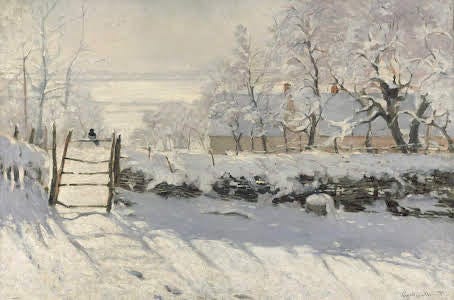
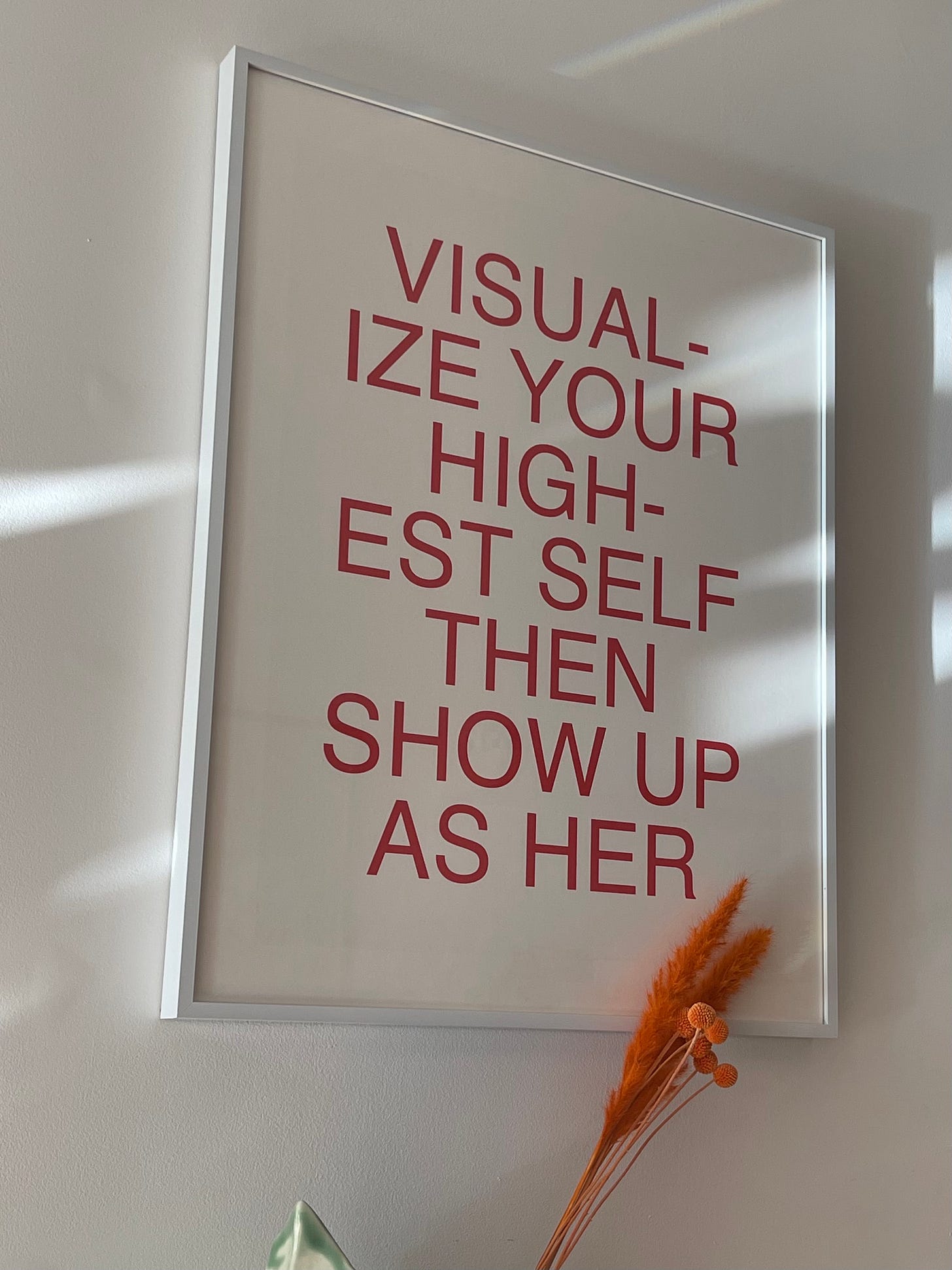

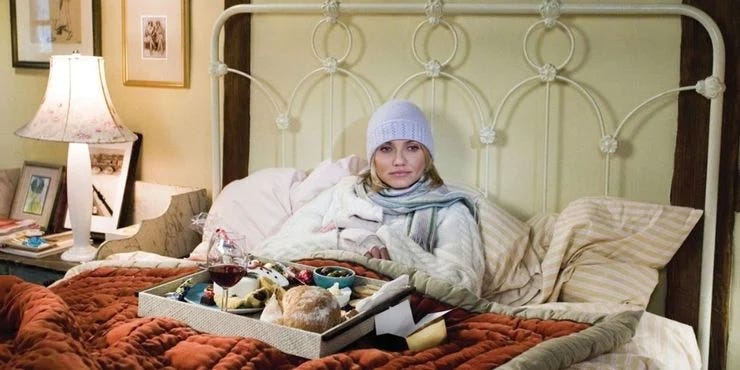
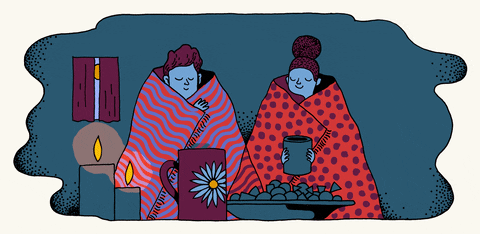

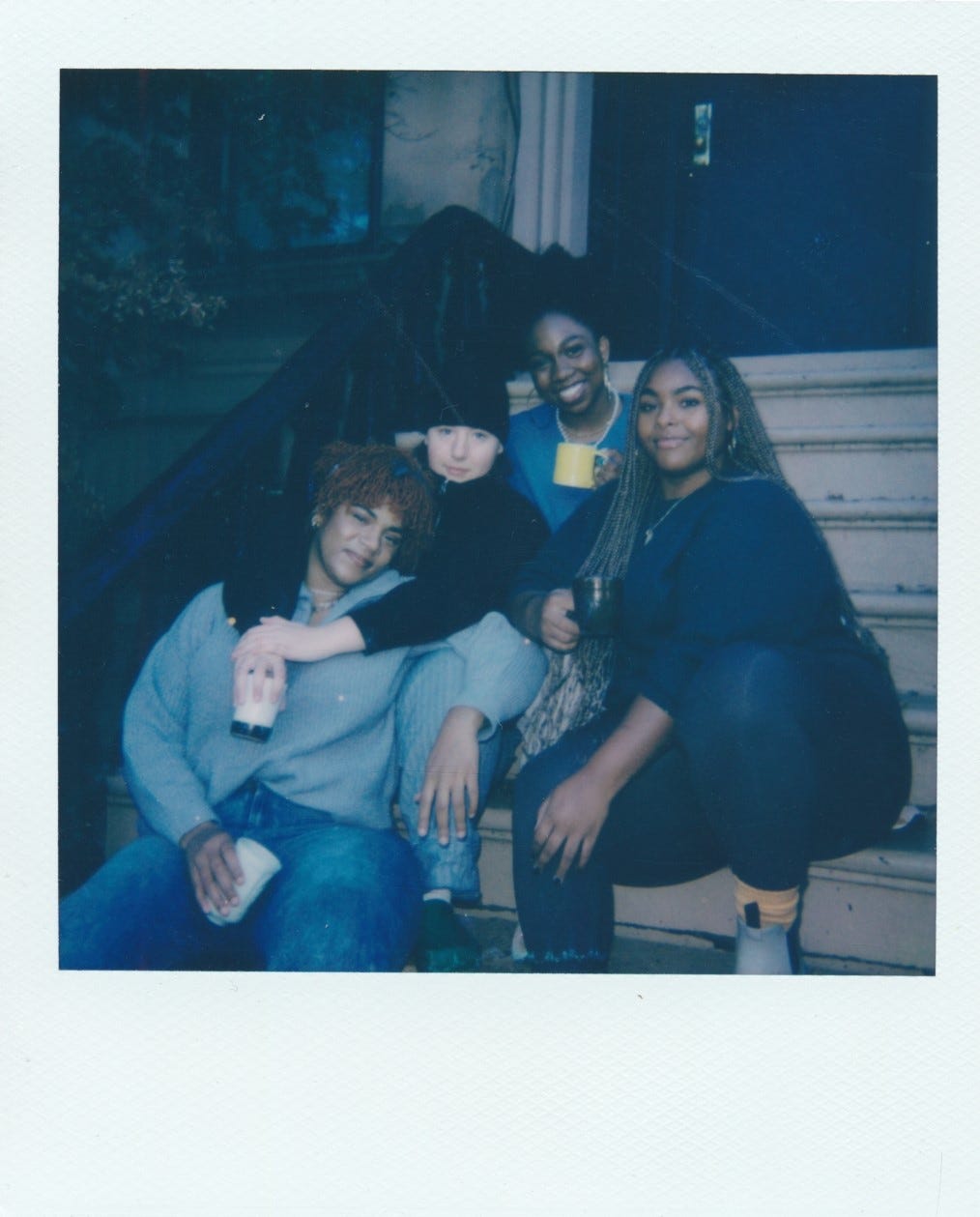
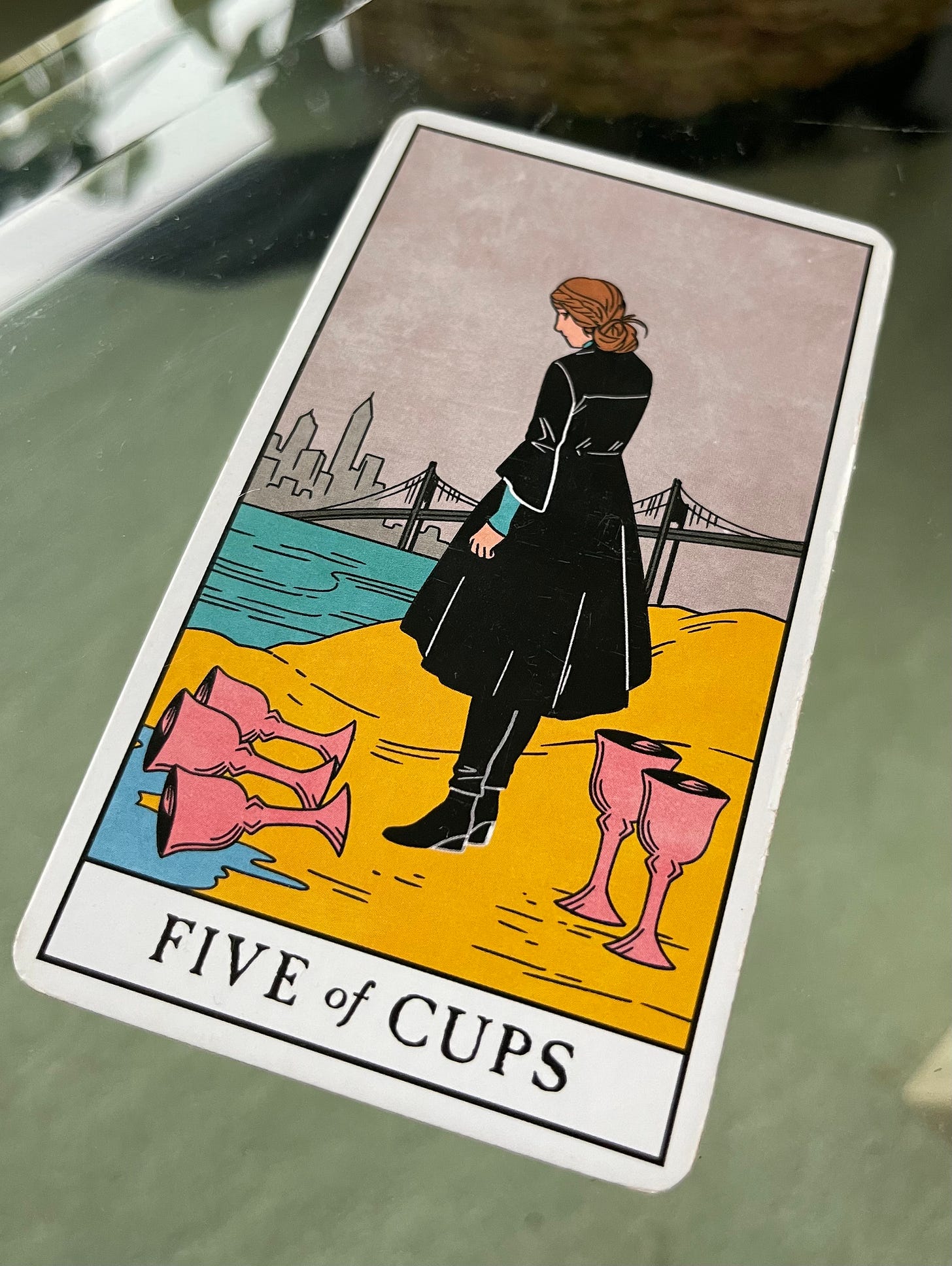

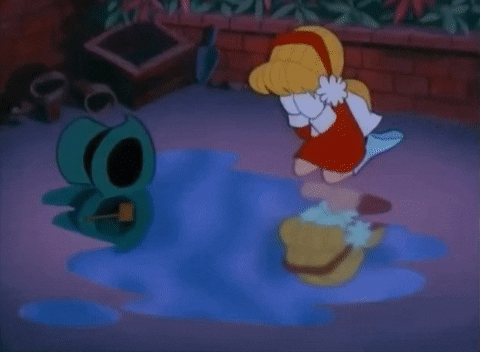
You gave words to something I couldn't quite understand about necessary loss <3 and I'm reading this at the exact time I needed to, thank you so much!